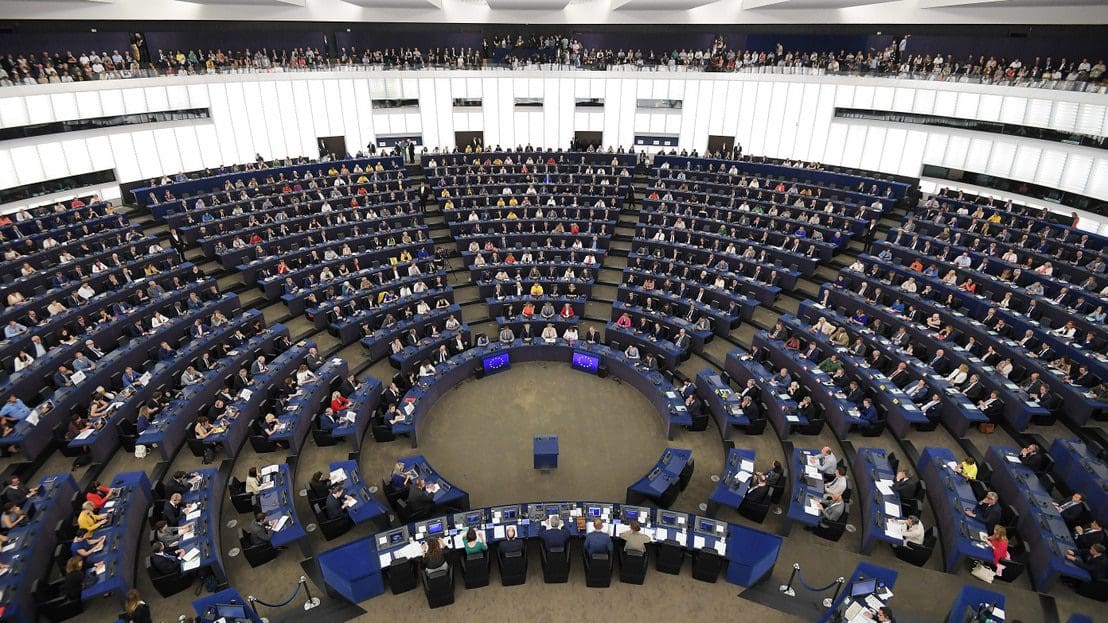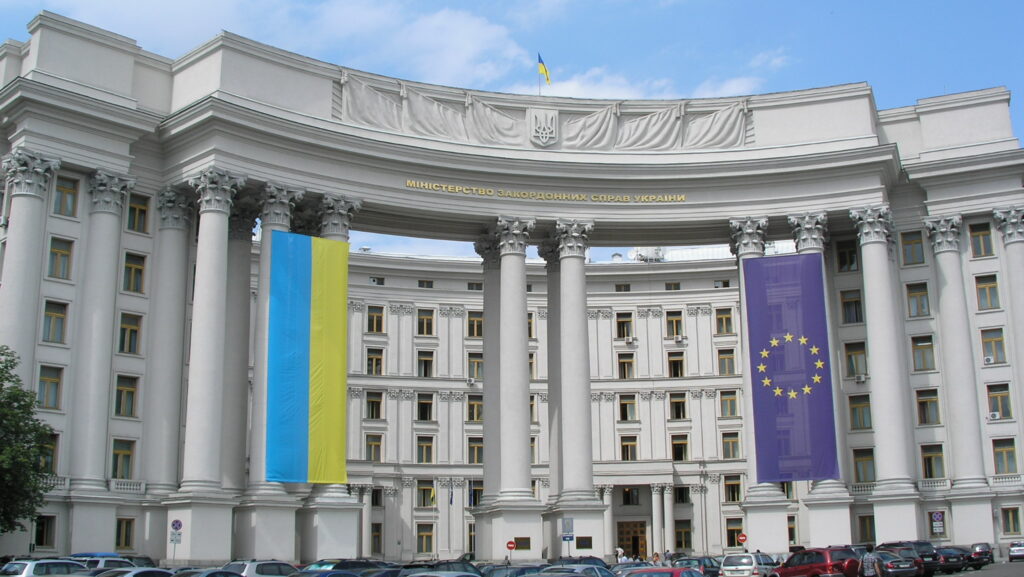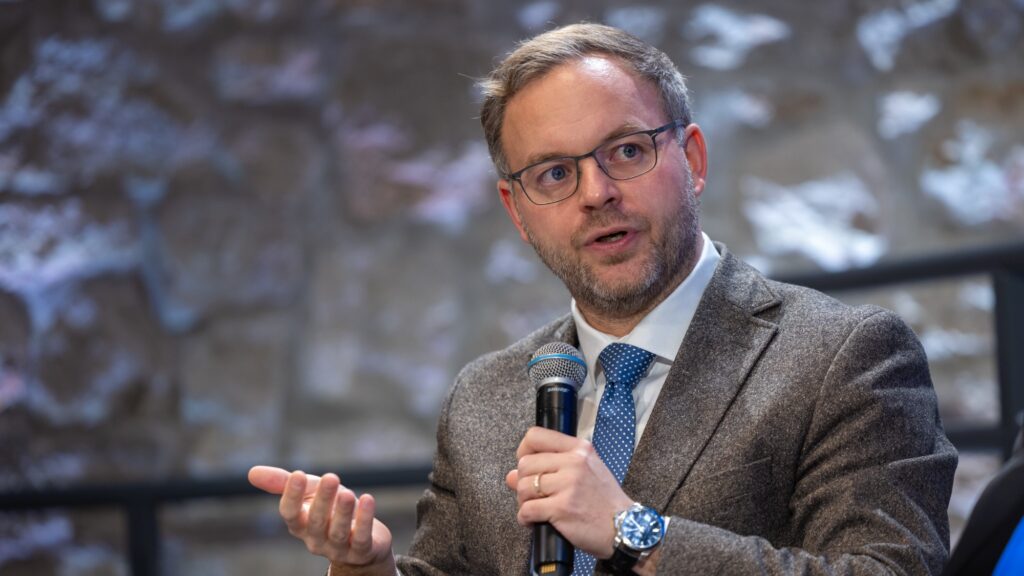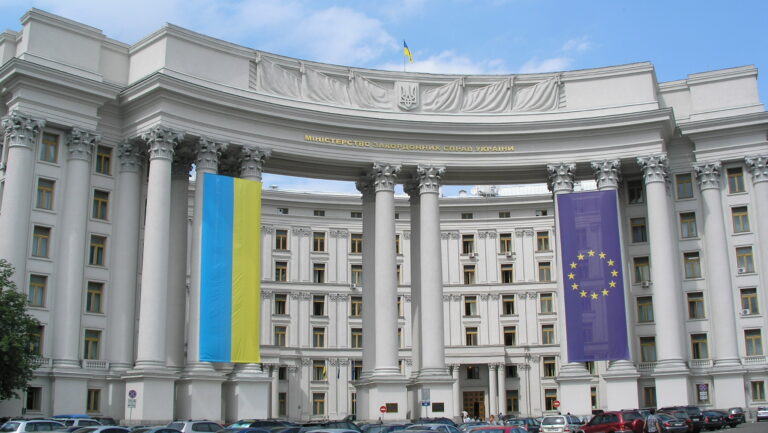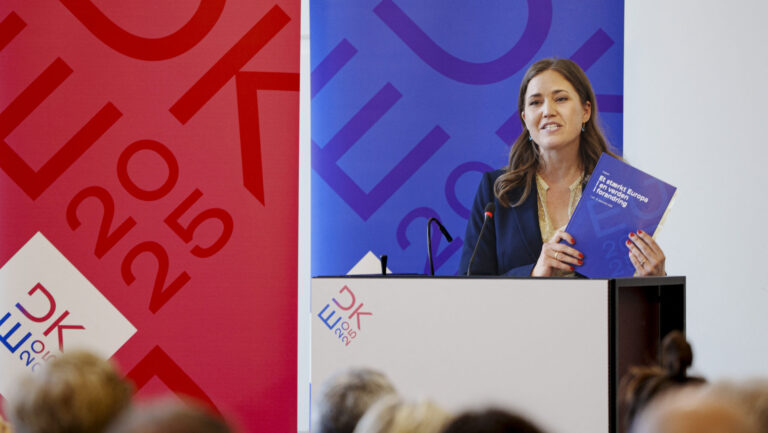Since the Second World War, European politics has been lingering in the shadow of superpowers. Germany resigned all claims to being a cultural and military leader of Europe, attaining unprecedented economic advantage in return. For a long time, it exercised its powers of influence mainly through the export of capital; these days, increasingly through the bureaucracy of the Union. Every once in a while, a characterful politician like de Gaulle appeared on the scene who sought their own path within Europe, but by and large, continental politics has invariably striven to satisfy the expectations of the superpowers that be.
Major trends in the present era
The dynamics of European history are defined by two forces: order and progress. European leaders only became successful when they were able to discern things worthy of preservation from things in need of renewal. History certainly repeats itself sometimes, but the problems themselves are always new, and the larger truth is often not recognized until decades after it has been proven. For instance, Western public opinion long remained reluctant to accept that liberalism and socialism were intimately related ideologies, or twin trends within the larger progressivist movement. The superficial commentators on global politics construed the decades of the Cold War as a period of struggle between these two ideologies, when this was only true on the face of it, as evidenced by subsequent developments. Classical liberalism has been waning since 1914. The clear winner of the past hundred years is socialism, with a track record of struggles between its various versions throughout the first half of the twentieth century. What was overthrown in 1990 was not socialism itself but its Soviet version alone. Today, China—the second strongest economic and military power in the world—has brought this ideology to perfect fruition in its modern forms and built a veritable Orwellian society. Concurrently, the world-leading United States is taking steady strides in the direction of socialism. Since the Second World War, the powers of the US federal government have increased inexorably, along with welfare expenditures and the nominal national debt. In the wake of the terrorist attacks of 2001, the powers of the American administration have skyrocketed by an order of magnitude, even compared to the already high levels in the preceding period. The life of the ordinary citizen is subject to unprecedented surveillance by the central government, and various spheres of civil society are increasingly being monitored by the executive power. In 2016, Bernie Sanders campaigned on a platform of promising Scandinavian-type socialism, while the newfangled presidency of Joe Biden has ushered in a period of building a humongous welfare society. While these ripples spread across the surface, the power of the large tech companies is on the rise, creating force fields and nodes of power hitherto unseen in world history. Through Big Data, these companies have been keeping tabs on the activities of natural persons and incorporated entities to a point where they are now capable of influencing the outcome of elections. Today, sheer globalization has transcended any and all political beliefs. It has emptied the very concept of liberalism, of which the only thing that remains for show is the adoration of free markets. It has modernized the left, including hard and soft versions of communism. In the name of progress, most self-described conservative forces have been co-opted. This process was only disrupted by the new-found self-awareness of Central Europe in the 2010s, and later by the election of Donald Trump.
A snapshot diagnosis of the European right
Essentially, the European right relies on the following two distinct trends. The radical wing is outspoken in articulating problems, but this sincerity often goes hand in hand with less than presentable rhetoric and ill-advised alliance politics. A few cases in point in the West were Enoch Powell and Jean-Marie Le Pen. At home, István Csurka and later Gábor Vona fell into the same trap. Radical politics is always limited by a glass ceiling of sorts. In times of crisis, support for these parties will inevitably rise, but their attempts to gain control of the political centre are invariably doomed to failure.
It aims to reconcile order with progress under local conditions. It embraces compromise in an attempt to dominate the political centre, while safeguarding traditional European and national values where feasible. The arguments of the European centre right are traditionally planted in natural law. The secular principles derived from Christianity (human dignity, subsidiarity, solidarity) are often complemented by references to Christianity, sometimes expressly citing the social teachings of historical denominations. Until recently, the centre right gathered under the umbrella of the European People’s Party (EPP), which relied for leverage on two factors. On the one hand, it enjoyed the large-scale support of the masses, with a significant part of its member organizations comprised of centre-right parties boasting a broad base of followers. On the other hand, it was bolstered economically, owing to the capital prowess and connectedness of European big business. The parties under the wing of the EPP obtained plenty of elbow room and influence.
The European centre right always seeks compromise.
In short, it was a politics of compromise that entailed considerable benefits, in addition to certain losses and waivers that could be readily accepted in return. However, the status quo that had been forged since the 1990s was later shaken by several events. The financial meltdown which hit the EU in 2008 was exacerbated by the migration crisis of 2015, and then, in 2020, by the coronavirus pandemic—an elemental plague the likes of which had not been seen for a long time. The Union put up a rather poor performance in responding to each of these three emergencies. Its inability to react with the requisite speed repeatedly caused cracks in social order and drops in the standard of living. The Union’s politics are typically sluggish, bureaucratic, and impossible to hold to account. These traits resulted in further disadvantages after 2008, as the crisis affecting real estate and financial markets reshuffled the structure of wealth in a way that prevented European citizens from profiting from it. The migration crisis continued to undermine Europe’s smug sense of security. The already high proportion of ethnic minorities in several cities skyrocketed, violence against women ran rampant, atrocities against Jews and homosexuals multiplied, and finally Christians moved into the crosshairs of attacks. Assaults on church buildings in France became the order of the day, with twenty churches set on fire there from the spring of 2018 to the spring of 2019, while the number of religiously motivated murders has been on the rise ever since. During the coronavirus pandemic, bureaucratic politics caused more damage than ever before. ‘Taking care of affairs by not taking care of them’ has cost the lives of tens of thousands of European citizens, but even this has not been enough for the Brussels elite to draw the lessons to this day. These events routinely corroborate the arguments of sovereigntist parties on the right.
Progress as the steamroller of the Western world
The economic crisis that took the world by storm in 2008 turned out to offer a historic opportunity for progressive forces, in that progress entered a new, escalated phase, stepping up the rate of various transformations. The experience of dynamic globalization presents a challenge for everyone, and the great overhaul also fuels a contest for the privilege of definitive interpretation. Globalization in and of itself has the effect of levelling the playing field around the world, gradually reducing differences between the continents, as was already observed by some at the beginning of the last century. Global big business has a vested interest in accelerating this process while keeping it at bay. To achieve these goals, it never tires from ratcheting up its influence on the institutions of culture and science, defining the trends and themes of the entertainment industry, including TV shows, feature films, and video games, and the sheer daily agenda of the media. In the Western world, it has assumed all but complete control over research and academic publication in the social sciences, which serves two purposes. First, it helps establish a conceptual frame of reference through which the process can be described in a way that will suit its interests. Second, it enables a sort of self-regulating defence mechanism by creating a language in which it is impossible to address issues it does not want to hear about.
Part of this process is the impregnation of the moderate European right with progressive ideas. This has given rise to ‘Christian democracy without Christ’, these days assigned as the universally applicable model to the countries within the Western cultural domain. What is happening is the construction of a shopwindow-right where all the props, slogans, and visual features hark back to the ethos of conservatism without mounting the faintest threat to the strategic goals of the forces of progress. This overarching enterprise aims to blur the boundaries between various cultures, mingling the residents of disparate continents, and enfeebling the internal cohesion of specific societies. The World Economic Forum, one of the preeminent unofficial pundits of the world, has gone so far as to proclaim that the ultimate elimination of private property is within reach within the next ten years. The sovereign European nation state stands in the way of such efforts, and this is precisely why globalization and sovereigntism have come to serve as the single genuine fault line in European politics today.
An entrapped Europe
The European right seeks to preserve that which once made our culture great
and continues to nourish its power to this day. While self-explanatory on the face of it, however, this agenda rubs many interests the wrong way. Efficient European cooperation building on strong nation states is antithetical to powerful interests such as those of the American Democrats and the massive capital backing them, as well as those of the Big Tech companies. Nor is a robust Europe to the benefit of communist China, or the Arab monarchies thriving on the export of crude oil and politicized Islam. Traditionally, Russia has been mentioned among those whose interests run counter to the success of Europe, but this is far from being as unambiguously true as it may seem. A conclusively Americanized Europe pandering to the project of spreading democracy around the globe is certainly not a welcome neighbour in the eyes of Russia.
In the globalized world, beset by America, China, and the Arab countries, Europe would be well-advised to push for efficacious cooperation, but the current trends in unification do not favour this goal. The swelling of the bureaucracy in Brussels is clearly detrimental to the continent’s competitiveness and self-defence capabilities. While political decisions are increasingly fettered by red tape, bureaucracy itself is being permeated by ideology. Officials without accountability make decisions about how the world-view of 446 million people should be shaped (cancel culture, gender ideology, the LGBTQIA lobby). Meanwhile, snags in the procurement of vaccines have claimed tens of thousands of lives in the past few months.
A world without world order
Until recently, the key paradigmatic concepts used in European politics consisted of neoliberal economics and liberal democracy. Since then, we have seen both fail conclusively; the former in 2008, the latter in 2015. The wave of economic crisis launched from America made it patently clear that financial markets would require much tighter supervision. In turn, mass migration and the cynical arguments of the human rights organizations that had incited it left no doubt that the only too natural need for the affirmation of European identity could not be articulated, let alone vindicated, in the language of liberalism.
The intellectual framework of the hitherto stable world order is now in shatters, and a new one is yet to take shape. Political forces formerly called liberal and socialist seem to be merging in a new political hybrid brought upon us by progress, which advocates total freedom in private life (it is quasi-liberal) while seeking to ensnare the individual, stripped of natural ties, in a new web of global dependencies, framed by structures impossible to monitor and supervise (it is quasi-socialist).
The challenges facing the new European right
Resisting global structures entails tremendous risks. The right must tap the brain of the international left for ideas, which remains steadfast in its proclivity for using tools external to political institutions. Closing ranks seems inevitable in view of the Europe-wide need for a well-organized conservative movement and professional support for building communities (shared-interest groups, agencies, clusters, advocacy and consulting organizations, religious organizations, lobby groups, action teams, demonstrations, and flash mobs). These should be backed by pragmatically marshalled economic forces, on the positive analogy of the American pro-life movement, a highly successful and efficacious initiative which created a coalition of neo-Protestant, Catholic, and Orthodox congregations.
An indispensable strategic goal, albeit one that can be achieved only over the longer term, is to minimize our dependence on information technology. By developing our own autonomous infrastructures, it would become possible to reduce our vulnerability to the tech giants. This would take, among other things, the construction of an international media network—a project possibly worthy of the attention of American Republicans. The well-known double standards of the media would certainly justify the creation of our own television and radio, new social media networks, and other online platforms.
The manoeuvering room of the Hungarian right
At present, Hungarian right-wing politics can exert an influence on three levels. The first is obviously that of domestic policy. The second is that of regional policy in the larger Carpathian Basin, which has been traditionally relinquished by the Hungarian left while being not only embraced by the Hungarian right but brought into the focus of political action after 2010. What is new is the third level, opened up in 2015, when the wave of mass migration put the Hungarian right on the map of Europe. At this juncture, Hungary— along with its allies in Central and Southern Europe—became the defending bastion of Europe once again. However, this unexpectedly refreshed, new-yet-old role generated conflicts the likes of which we had not seen for a long time, allowing centuries-old historical and cultural differences, dormant for centuries, to erupt to the surface. In 1989–1990, the peoples of Central Europe rid themselves of communism and earned a chance to re-establish themselves as an integral part of Europe. However, by the end of the twentieth century, the West had accomplished the changes dictated by the secular model, and the Europe as seen by Hungarians and Poles through the Iron Curtain had ceased to exist. From the inception of the democratic turn, it took about two decades for the peoples of Central Europe to realize that the essence of Europe as they had known it was entrusted to their guardianship, and that the West no longer meant much more than the promise of prosperity. Yet by the early twenty-first century it had become clear that the West was not interested in improving living standards in Central Europe. The logic of colonialism operates as it always has. The great powers continue to deny the existence of autonomous interests in our region, enchain its countries in a radial satellite pattern, and seek to weaken solidarity among them. In spite of these forces, Hungary and Poland have insisted on nurturing their ties to the ancient traditions of Europe, and have remained steadfast in the face of postmodernity and transhumanism in affirming the notion of the human being bequeathed to us by antiquity and Christianity. As a result of these factors, an independent brand of Central European conservatism has appeared on the scene over the past decade, which continues to hold beliefs no longer adhered to or even proclaimed by the West. This new conservatism is now constructing its own institutional forums before our eyes.
Alliance options for the Hungarian right
No political alliance can endure unless it is based on mutual interests while standing up for shared values. The Polish–Hungarian alliance with Italy has now entered a period of strategic planning, with the foremost aim of formulating a minimum standard of cooperation that can be joined by other forces on the right further down the line. The European right is sovereigntist, in the sense that it seeks to erase the democracy deficit that has been steadily arising in the European Union. It will presumably insist on scaling back bureaucracy, upholding the principle of subsidiarity, and taking increasingly radical action against illegal immigration in order to protect the interests of native populations.
The potential value-based points of accord are as follows. In Western Europe, religion in the traditional sense has essentially ceased to exist, although Christianity remains a part of the cultural foundation of society. Consequently, the new European right will probably not be religious in the declared spiritual sense, but this will not prevent it from affirming the natural law teachings of Christianity without falling into the trap of self-contradiction. This could serve as the basis for its respect for traditions, cultural self-defence, and pro-life stance. In order to protect the original nations of Europe, the new right will commit massive financial resources to provide incentives for higher rates of natural domestic births. This will have to go hand in hand with encouraging a conservatively inflected feminism by accomplishing a radical transformation of the educational system to ensure women’s ability to reconcile motherhood not only with building a career but also with studying for their first degree. All of this will likely be accompanied by measures simplifying the tax system, providing cuts for families, and imposing new taxes on financial capital. The project to forge a new political community can only be successful if the political will behind it points consistently in the same direction for several years in a row. The European right must also be bolstered by newly organized economic resources, or it will not stand a realistic chance of survival. It will have to find ways to connect with industries with vested financial interests in keeping fiscal policy and economic regulation within the purview of national powers. It will need partners willing and capable of shouldering mid-term losses in the hope of winning potent political representation in the long run.
Summary
The bulk of the European political elite no longer has original ideas and fails to raise relevant issues. It has resigned itself to importing political products invented by progressivist institutions in America, built within the context of the American political system with the aid of international media, and propagated using the tools of soft power, exemplified by scientific cooperation, NGOs, the film and television industry, and other outlets of mass culture. This trend can be concisely identified as a shift to the left. If the European right wants to survive, it will have to broaden its horizons far beyond its scope of vision today, casting its gaze not just beyond the borders of Europe but even beyond the fringes of the Western world as we know it. It must draw inspiration from the vast culture-generating powers of Christian orthodoxy, and keep a close watch on conservative thought emanating from South America. All the while, it must search for and identify potential political allies on all the other continents as well.

